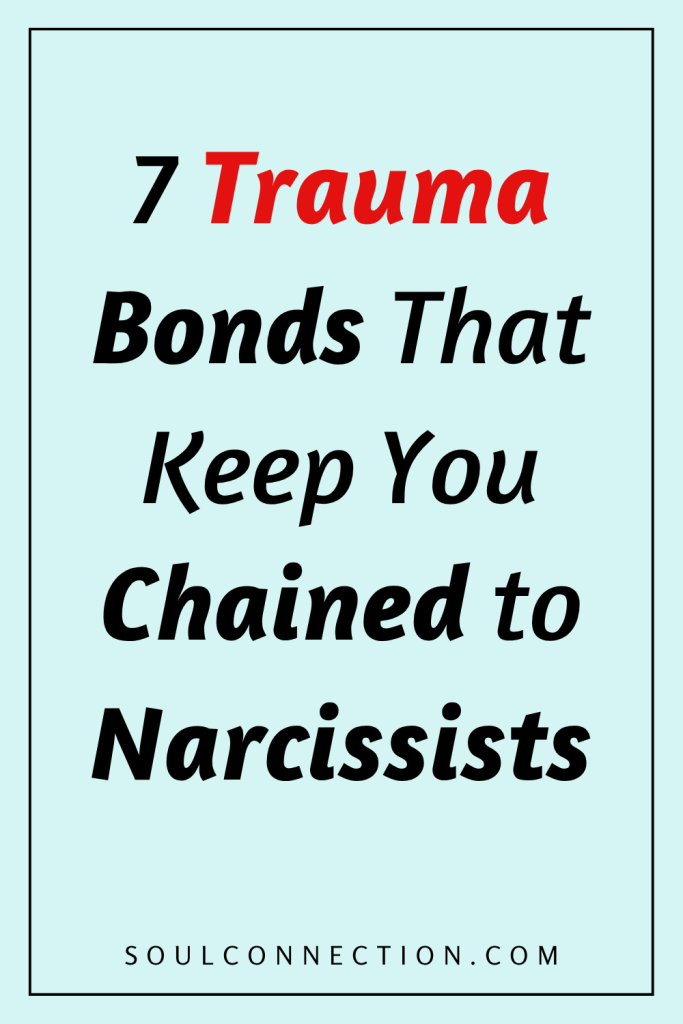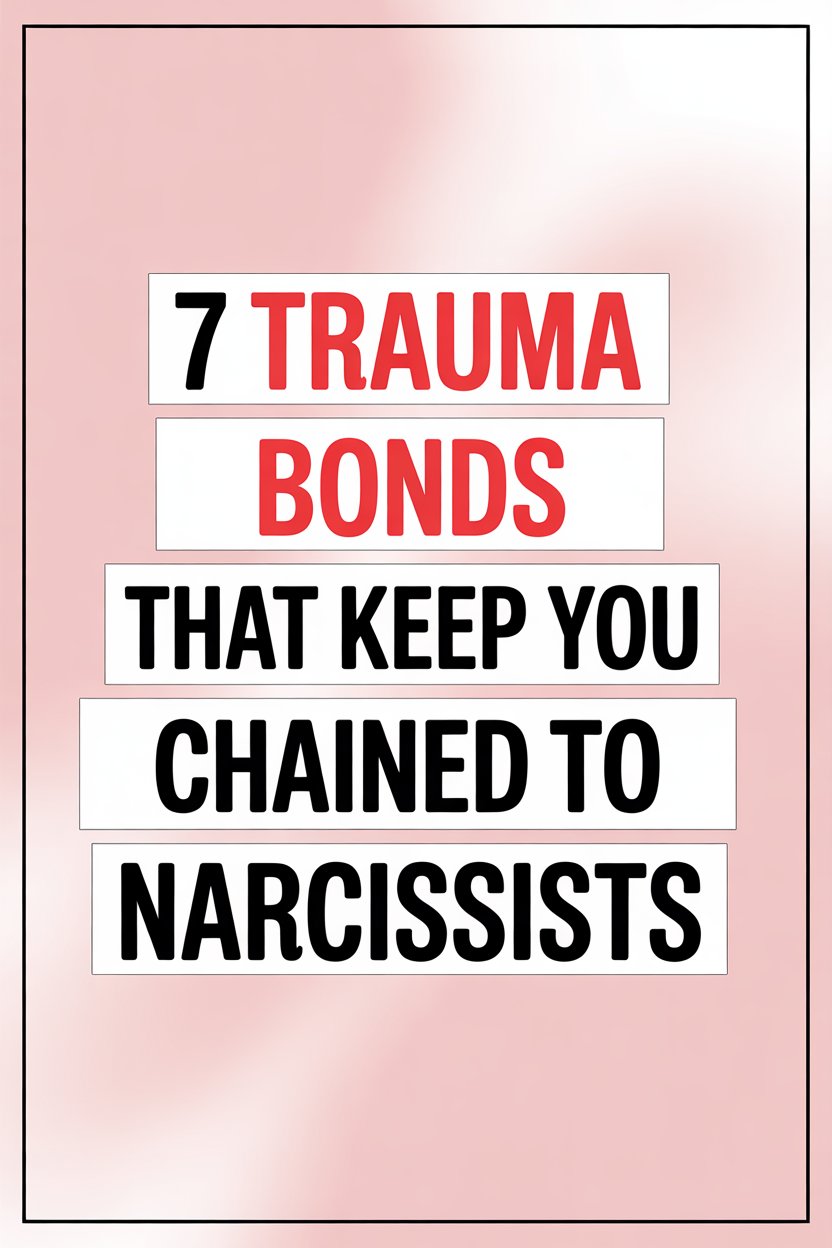Ever tried escaping quicksand in flip-flops? That’s about as successful as prying yourself loose from a trauma bond with a narcissist.
One day, you’re thinking, “Hey, I deserve happiness!” and the next, you’re apologizing for breathing too loudly during their favorite show.
Here’s what keeps you circling the drain when all you want is to climb out. No judgment—just a flashlight on the sneakiest chains that keep good people tangled up with narcissists.
1 The Rollercoaster of Reward and Punishment
Weird how every time you think about leaving, your narcissist partner turns on the charm? Suddenly, you’re getting the attention, affection, and—dare we say it—admiration you’ve been craving. Until you’re not.
This cycle of highs and lows actually wires your brain to crave the good moments even more, like a lab rat pressing a lever for the occasional cheese pellet. Except the cheese is emotional validation and the lever is your dignity.
That unpredictable “maybe tomorrow will be better” is a hook you can’t see but definitely feel.
Breaking free starts with noticing the pattern. Pay attention to how your feelings spike and crash, and ask yourself: Is consistency really too much to ask? (Spoiler: it isn’t.)
2 The Echo Chamber of Self-Doubt
Ever been so gaslit you could power your local streetlights? Narcissists are Olympic-level mind-benders, warping your reality until you’re second-guessing what you had for breakfast, let alone your own judgment.
The classic moves: They deny things they said, blame you for their mood swings, and frame every disagreement as your fault. Over time, you start wondering if you’re actually the problem. You’re not.
Self-doubt keeps you stuck, persuading you that you won’t survive on your own or that you’re lucky to have anyone at all. Reclaiming that inner voice—yes, even if it’s just whispering at first—is step one for breaking the trance.
3 The Nostalgia Trap
Sunshine, rainbows, and that one trip where they pretended to be a decent human being. If you find yourself constantly replaying the greatest hits of your relationship, while glossing over the constant drama, you’re in a nostalgia trap.
Narcissists have a way of creating just enough magical moments to keep you hooked. The bad times start to fade in your memory, while you wait (and wait… and wait) for a return to those blissful early days.
Remind yourself: That version was an act. No one can keep up a flawless performance forever, not even your narcissist (who, let’s face it, isn’t as talented as they think).
4 The Mission to Fix or Save Them
Maybe you once saw glimpses of vulnerability, or they told you tragic stories from their past. Now, you’re convinced that with just enough love, patience, and overlooked red flags, you can fix them.
This mission to heal the wounded narcissist is the emotional equivalent of trying to teach a cat to fetch. Noble, but doomed.
Your compassion is a beautiful thing. It’s just wasted on someone who sees your empathy as an endless resource to exploit.
Repeat after me: “I am not a rehab center. I am not their emotional support animal.”
5 The Guilt Trip Express
Narcissists are travel agents for guilt trips. Planning to leave? Suddenly, you’re the villain in their sob story.
They’ll remind you of everything they’ve done for you, magnify your mistakes, and warn you how much you’ll hurt them by walking away.
Next thing you know, you’re apologizing for asserting boundaries, or for wanting a relationship that doesn’t feel like an unpaid internship.
Guilt is the leash that keeps you from running out the door. Here’s a thought: Guilt thrives in silence. Confide in a friend or write down what’s really happening.
Shine a little daylight on those feelings, and the guilt starts to shrivel.
6 Fear Mongering and Threats
Narcissists are experts at making you believe the outside world is a barren wasteland without them.
They’ll drop hints about how nobody else will put up with you, suggest you’re too damaged for real love, or even threaten to harm themselves or expose your secrets if you leave.
It’s classic cult-leader stuff, only with fewer matching tracksuits. Fear keeps you stuck, convinced that leaving will unleash chaos, loneliness, or endless drama.
Snap out of it. This is emotional blackmail, not reality. The truth: People leave narcissists and survive—sometimes even thrive. You just don’t hear about it over the narcissist’s noise machine.
7 Isolation and Control
Ever noticed your world shrinking? Friends disappearing, family drifting away, hobbies abandoned—funny how that happens when you’re hooked to a narcissist.
They excel at isolating you. Maybe it’s subtle, like “Your friends don’t really get us,” or “Your family’s so negative.” Before long, your only lifeline is the narcissist, which is exactly how they like it.
Isolation is the final lock on the trauma bond prison door.
Rebuild those bridges, even if it feels awkward at first. Text the mate you haven’t seen in months, show up for Sunday lunch with your nan, or say yes to that group chat invite.
A bit of outside perspective works wonders on narcissist-induced tunnel vision.
Snapping the Chains Tonight
Trauma bonds aren’t accidental. They’re built, brick by brick, through manipulation, confusion, and just enough kindness to keep you guessing.
The exit ramp doesn’t have to be dramatic. It can start with one tiny act of rebellion: Speaking your mind, calling a friend, or just admitting to yourself that nothing is going to magically change.
Every trauma bond is a chain, but chains can be broken—sometimes faster than you think, once you spot where they’re weakest.
And if you need permission to start? Consider it granted.
Drink some tea, blast your favorite song, and remind yourself: You survived them. Now it’s your turn.
You’ve got this.


